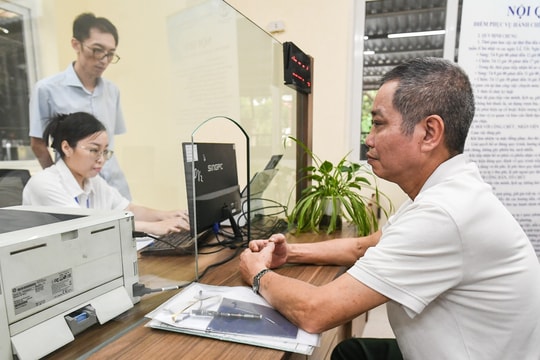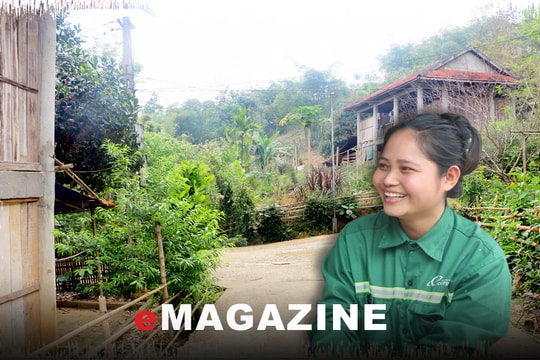Exemplary "locomotives" of the village
The road leading us to Yen Hoa village (Mon Son commune) winds along the green mountain slopes, with stilt houses looming peacefully under the autumn sun on both sides. The village has 132 Thai ethnic households that appear simple but contain many interesting stories that make up the vitality of the village. There are pioneering party members doing business, virtuous daughters-in-law and sons-in-law who are attached to this land and have become exemplary "locomotives" who quietly shoulder the work of the village for decades.
.png)
Gia Huy - Thanh Phuc /Technique:Hong Toai• October 7, 2025

Our first stop when visiting Yen Hoa village was the bamboo rat breeding model of party member Loc Van Chung (born in 1983). The stilt house of the Thai ethnic man looked spacious, clean, and tidy; the bamboo rat breeding area nearby was divided into square compartments and had a dry, airy floor.
In the large and small squares, the bamboo rats, with smooth fur and round black eyes, were leisurely gnawing on the bamboo sticks, occasionally poking their heads out and looking around as if inquiring. Few people would have thought that, from rodents that originally belonged to the mountains and forests, Mr. Chung would turn it into a profession that provided a stable income.
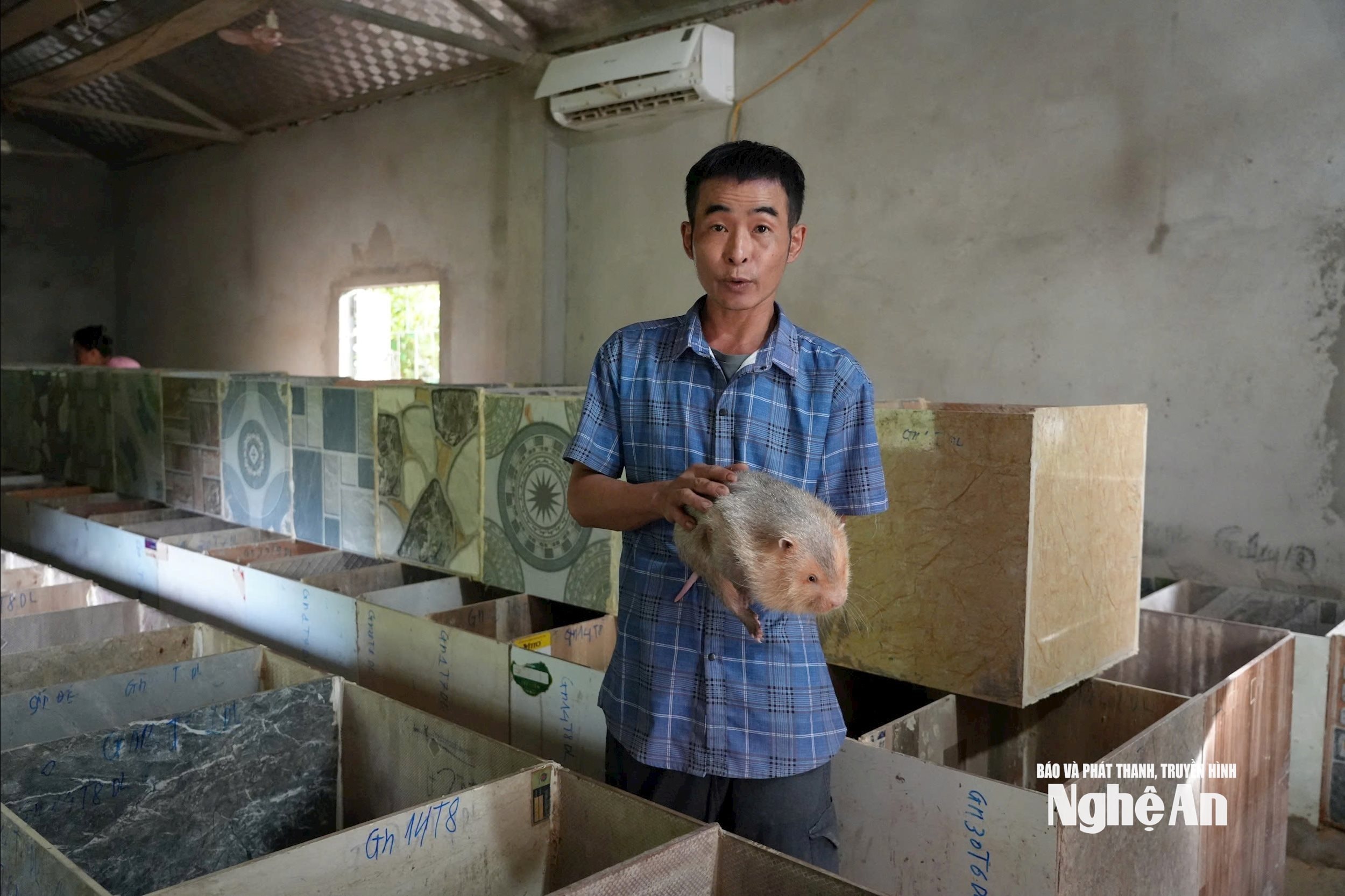
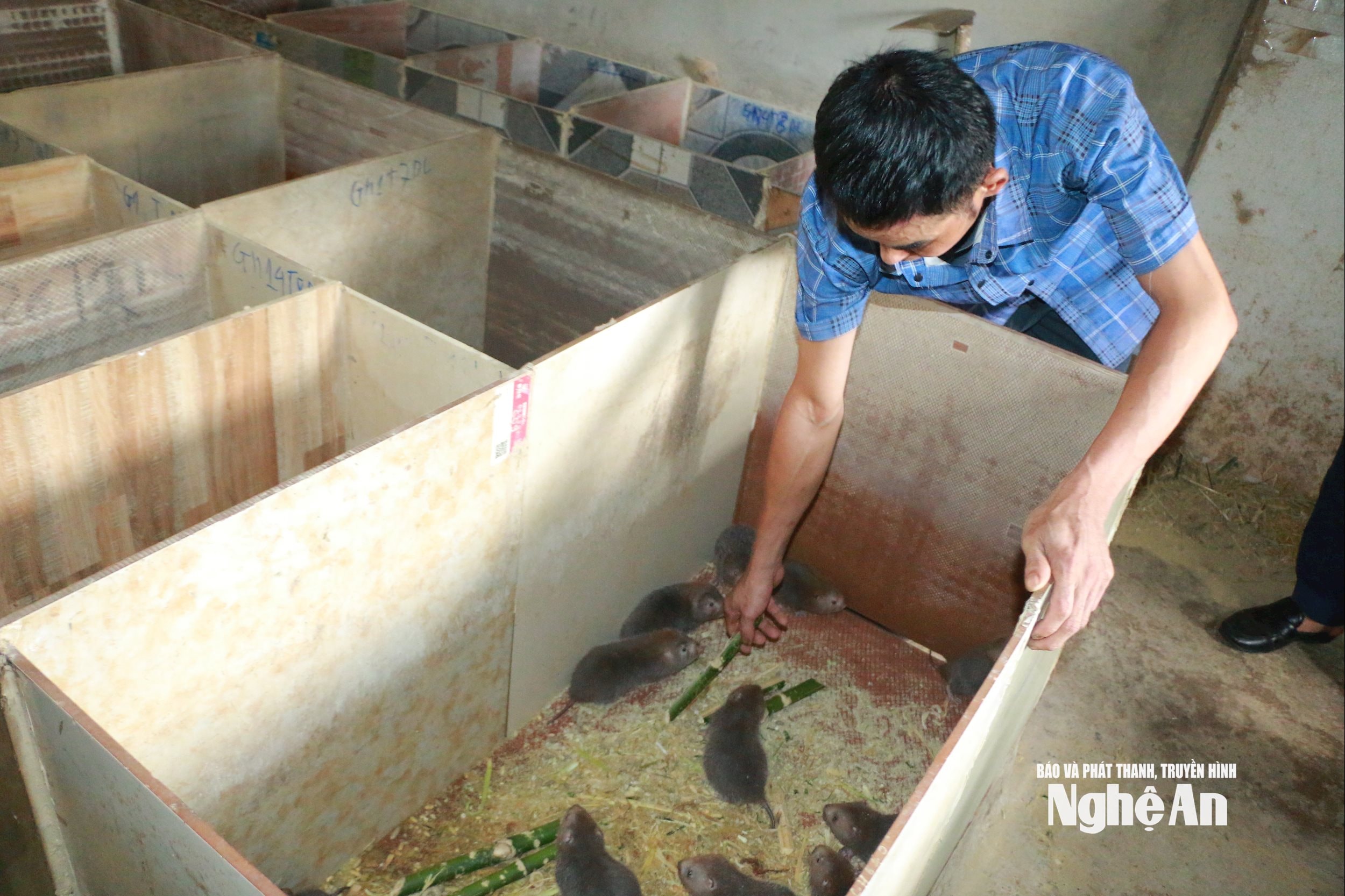
Pouring a bowl of green tea to invite guests, Mr. Chung leisurely said: In 2019, while surfing the internet and seeing people raising bamboo rats for high economic efficiency, he decided to learn more. Not only did he read documents, he also traveled to farms to learn. At first, he only dared to raise 20 pairs to try, sometimes he was so worried that he couldn't sleep because the bamboo rats were weak and grew slowly.
But he was patient, experimented, learned care techniques, understood the growth characteristics of bamboo rats, and knew how to protect against heat and cold. Up to now, the bamboo rat herd has reached 600, of which 150 are breeding, with the largest bamboo rat breeding scale in the region.
The main food sources for bamboo rats are bamboo, bamboo, corn, sugarcane, which are locally available. Meat rats take about 10 months to reach the weight for sale, while breeding rats can be sold after 4 months. A mother rat can give birth to 2-4 babies per litter, and can give birth to 3 litters a year. The selling price ranges from 1-1.4 million VND/pair, with breeding rats sometimes selling for up to 1.6 million VND/pair.
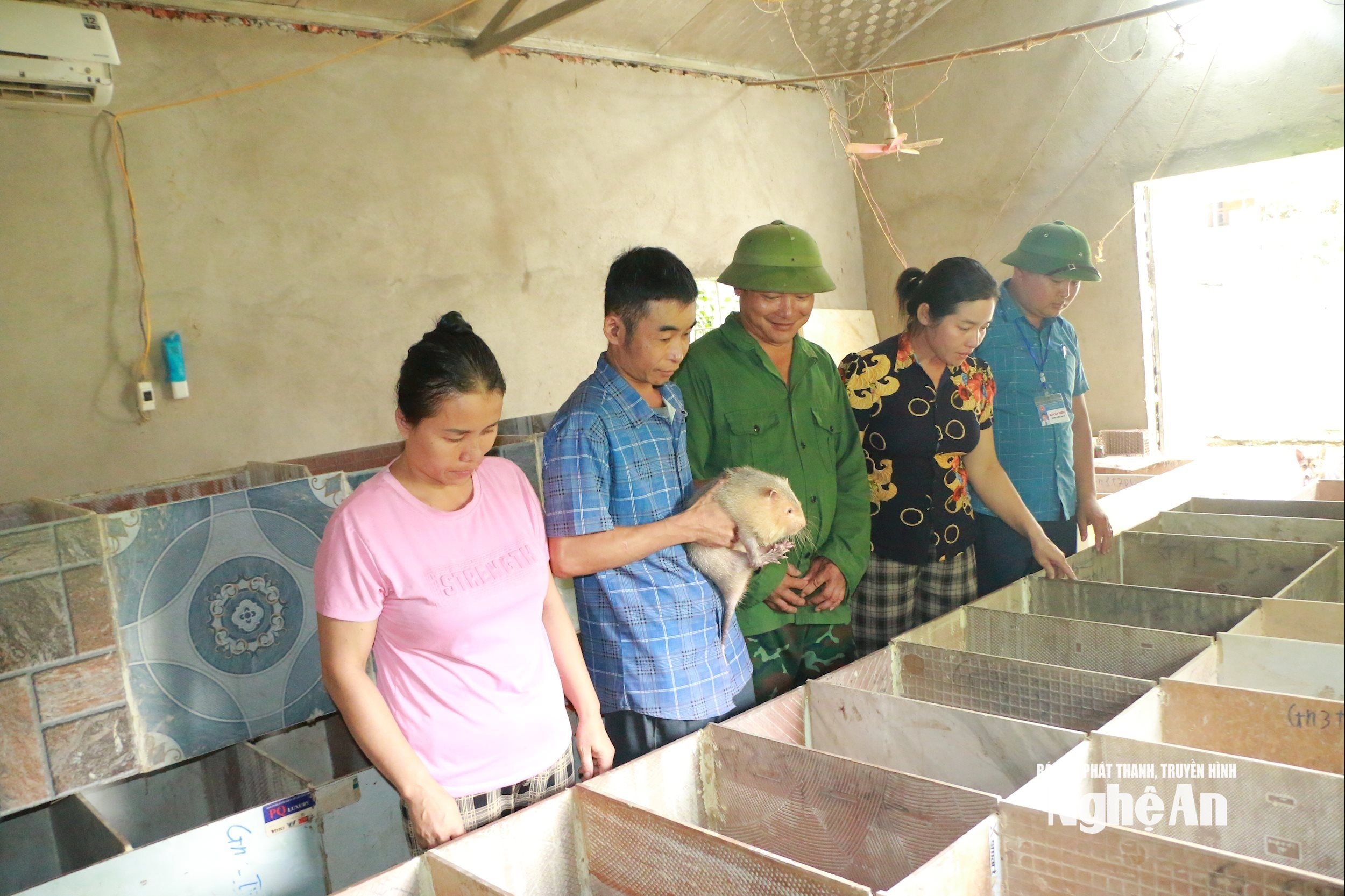
Traders from Thanh Hoa, Nghe An and neighboring areas often come to his house to buy, sometimes buying hundreds of pairs at a time. There are times when he does not have enough supply to sell to the market.
Thanks to raising bamboo rats combined with growing sugarcane, corn, 2 hectares of acacia and raising pigs, his family earns about 250 million VND per year. That amount of money helps him buy a 4-seat car to run a service, convenient for traveling and serving production.
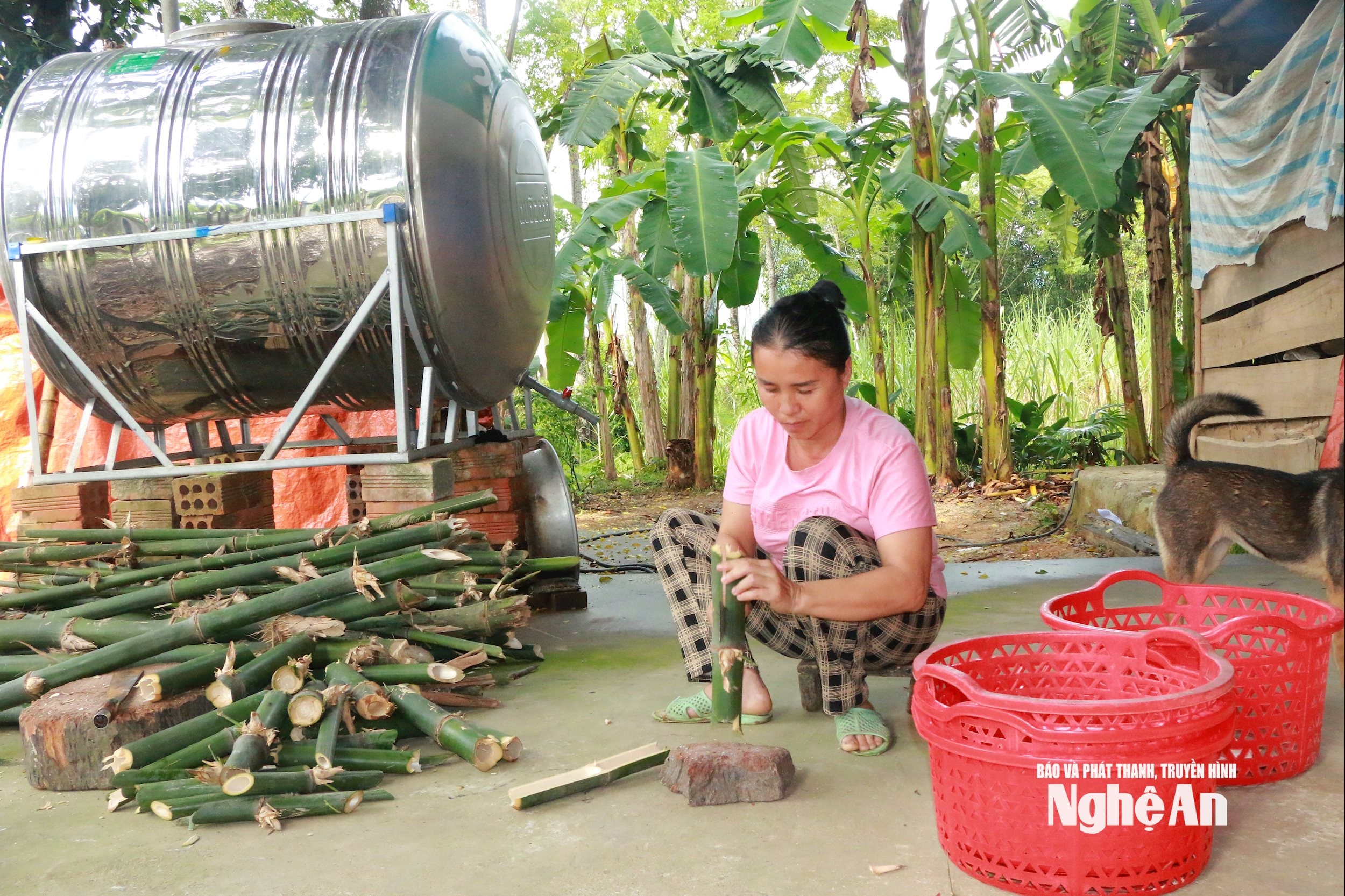
Learning from his model, some households in the village have invested in raising bamboo rats, thanks to which they have "food and savings". Typically, Ms. Luong Thi Mo and Mr. Ha Van Thao raise 50 pairs; Mr. Loc Van Truyen in Met village has increased from 10 pairs to 100 pairs; Mr. Nguyen Huu Tai in Lien Son village raises 37 pairs...
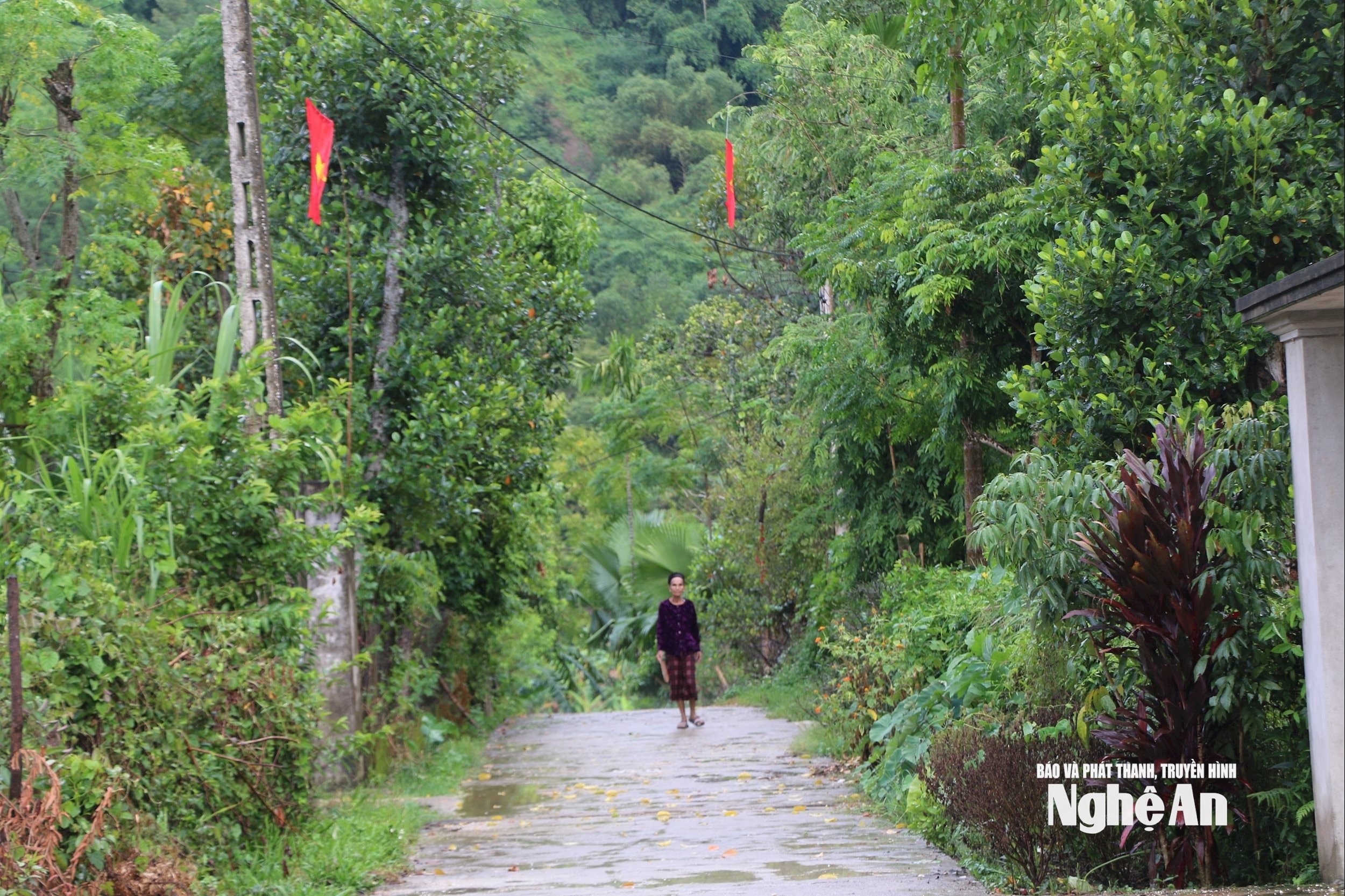
What is admirable about Mr. Chung is not only his determination to do business but also his sense of responsibility to the community. In addition to production, he also takes on many roles in the locality: member of the Party cell committee, village team leader, and also secretary of the Youth Union.
His relationship with the Youth Union has lasted for more than two decades, from 2001 until now. Although he has long been past the age of the Youth Union, he has asked to retire many times to focus on family matters, but the Party cell encouraged him: "Without a successor, you should try to take on more responsibility for the village." So he continued his role as a youth leader, becoming a support for the young generation in the village.
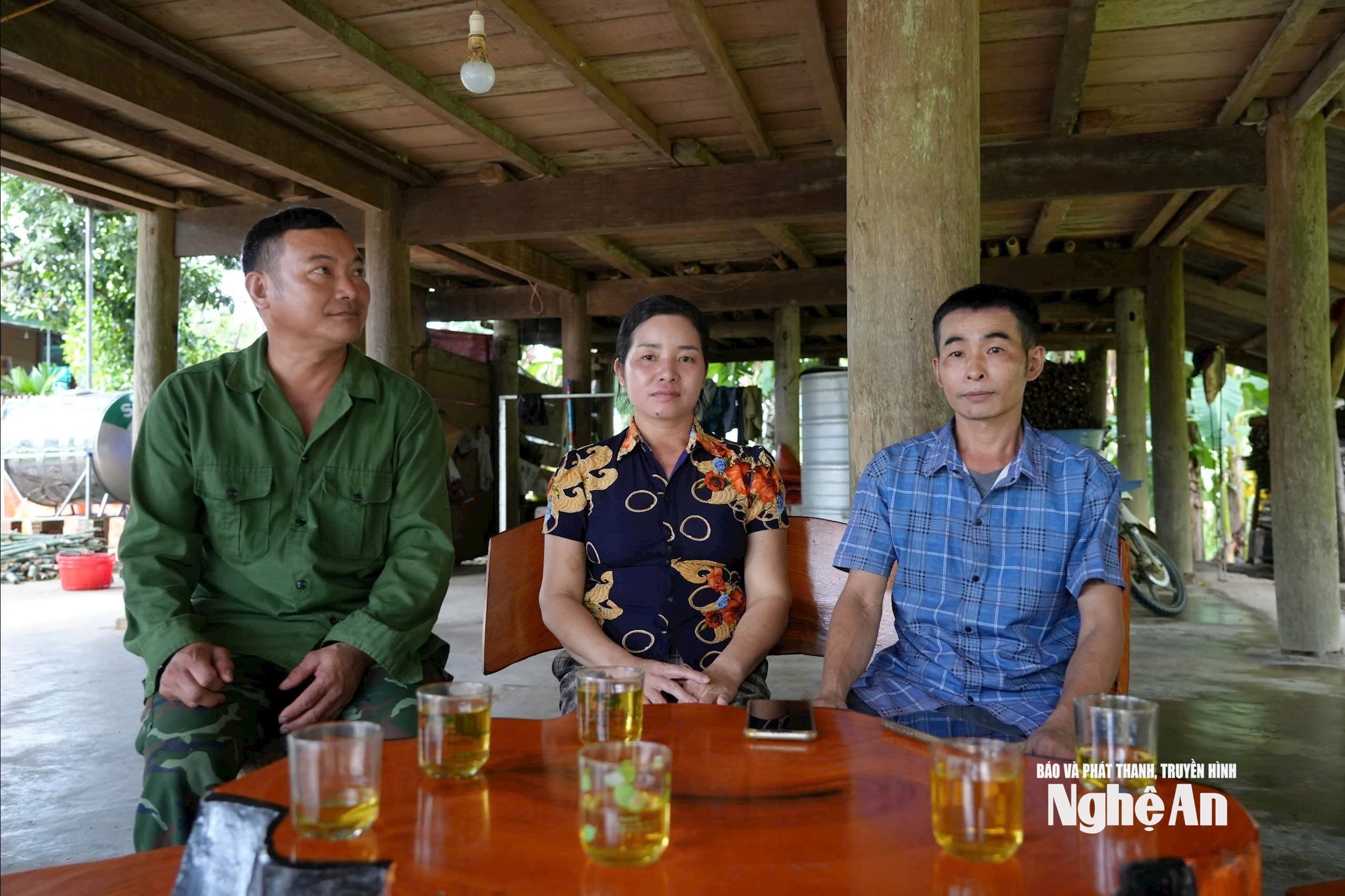
The Yen Hoa Youth Union has 40 members, but most of them are studying or working far away, now only 4 people are still participating in regular activities. Therefore, the image of a man over 40 years old still persistently holding the position of Secretary of the Youth Union branch becomes even more special. Even his first daughter, who just turned 18 this year, is also a member and participates in the activities of the Youth Union branch where her father is the Secretary. A detail that is both interesting and valuable.
Mr. Chung confided: “In the past, the Union activities were very bustling, with 40-50 participants. Now many young people leave the village to make a living, that pressure makes me even more compelled to find ways to develop the economy right in my hometown.
I want to prove that if you dare to think, dare to do, work hard and persevere, you can still start a business here. I am also always willing to share my experience in raising bamboo rats with people in the commune and neighboring areas."
Sitting under the porch, amidst the rustling sound of bamboo, Mr. Chung told the story in a simple voice, sometimes laughing, sometimes pensive. Listening to him, one realizes that raising bamboo rats is not just a job, but also a journey of sleepless nights, of failures and then getting up, of traders coming to order hundreds of pairs.
In that story, there is sweat, there is worry, there is joy when the plan is successful, and importantly there is sharing and helping each other among people who have the same passion for the job.

In the friendly conversation over a pot of green tea, we also heard another "strange thing" that creates a unique feature in Yen Hoa: That is, the "locomotives" who shoulder the current village's work are mostly good daughters-in-law and sons-in-law. They were not born in Yen Hoa, but they have attached themselves, contributed, and considered the village as their second homeland.
Village chief Vi Van Luu (born in 1978) is originally from Yen Khe village (former Luc Da commune). As a son-in-law, he has been attached to and trusted by the villagers to be elected as the village chief for 16 years. He said: “Most of the young workers in the village go to work far away, sometimes I want to quit, but I can’t do village and people’s work. The villagers’ trust is the motivation for me to continue to stay.”
.png)
Party cell secretary Luong Thi Mo (born 1979), formerly a kindergarten teacher in Tan Hop village. She joined the Party while still active in the Youth Union, then followed her husband to Yen Hoa village as a daughter-in-law, and from 2012 until now she has held the role of Party cell secretary.
She said: When she was assigned the task, her husband was working far away, and her two children were still young, she was worried, but then her husband encouraged her to boldly accept the responsibility. Up to now, she has been attached to this position for more than 10 years, always striving for the common development of the village.
Deputy Village Chief and Security Team Leader Loc Van Dan is also a son-in-law of the village from another place. He is one of the people who shoulder many tasks of the village such as security, order, conflict mediation, and production mobilization. They are the sons-in-law and daughters-in-law who were not born and raised in Yen Hoa village, but with their heart, affection and responsibility, they have become the "locomotive" of the community.
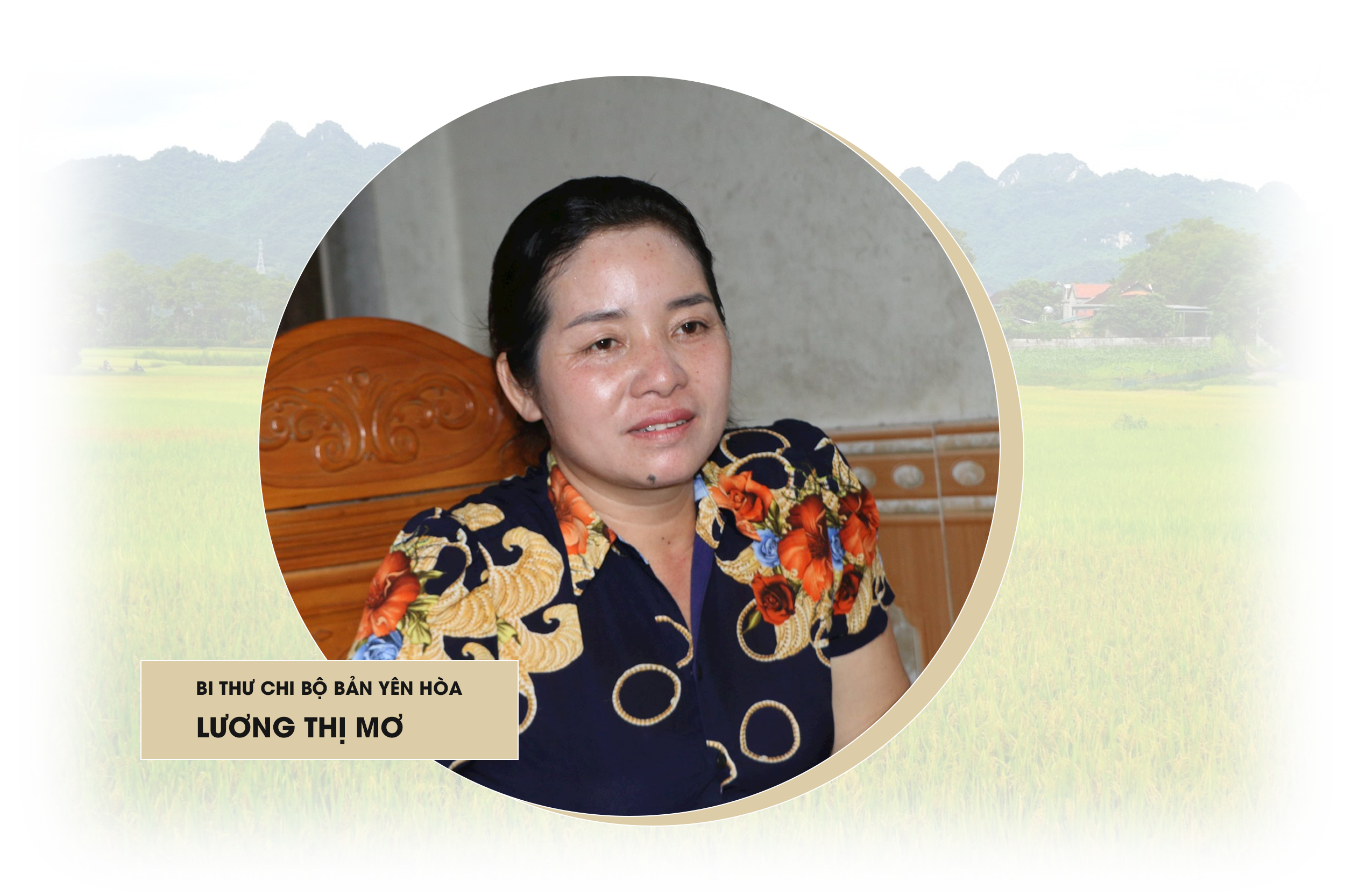
Yen Hoa is a Thai ethnic minority village, more than 7km from the center of Mon Son commune, with an area of over 80.38 hectares, divided into many clusters. There are a total of 132 households, with 589 people, many of whom are young workers working far away, making the workload of the village cadres larger. Of the 17 party members of the Party cell, up to 8 people work far away. That makes those who stay have to make more efforts, from administrative management to taking care of people's lives.
For example, during the recent storms and floods, landslides in canals and ditches have seriously affected irrigation, causing many fish ponds to lack water. The Party cell and the village management board immediately made recommendations to higher levels and mobilized people to reinforce and repair to limit damage. They not only handle incidents but also have to be proactive in preventing and combating natural disasters, protecting people's production.
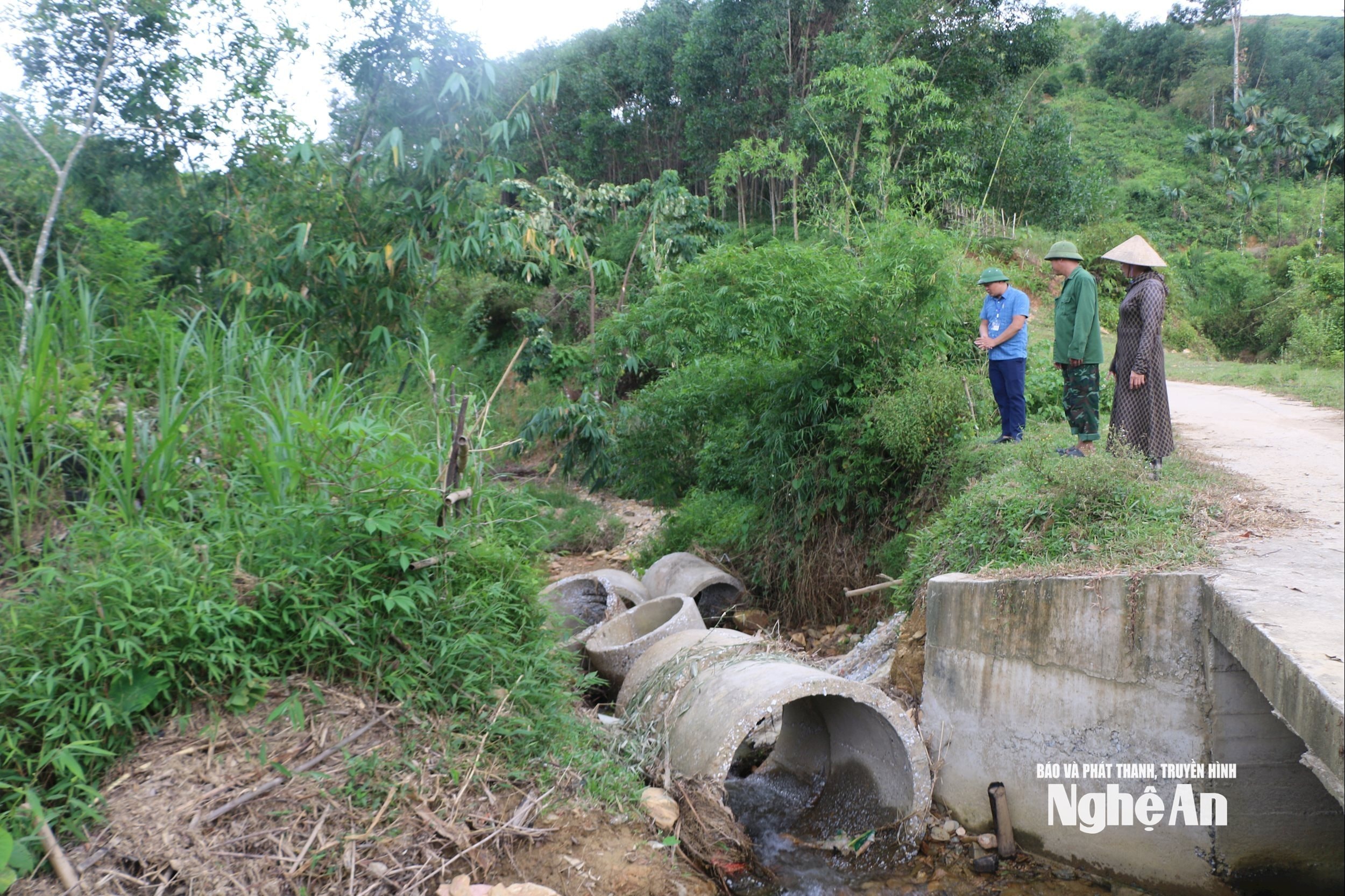
Ms. Luong Thi Mo - Secretary of Yen Hoa village Party Cell shared that the current work is more complicated than before. Implementing the 2-level government model makes the work more complicated, incoming and outgoing documents must be updated and saved in books.
When there is a policy, the radio announcement cannot reach many places, people rarely use Zalo groups, many elderly people are not familiar with technology, so village officials have to go to each cluster to directly announce and guide. Therefore, village officials must not only understand the policy, but also know how to communicate and mobilize people to agree to implement it.
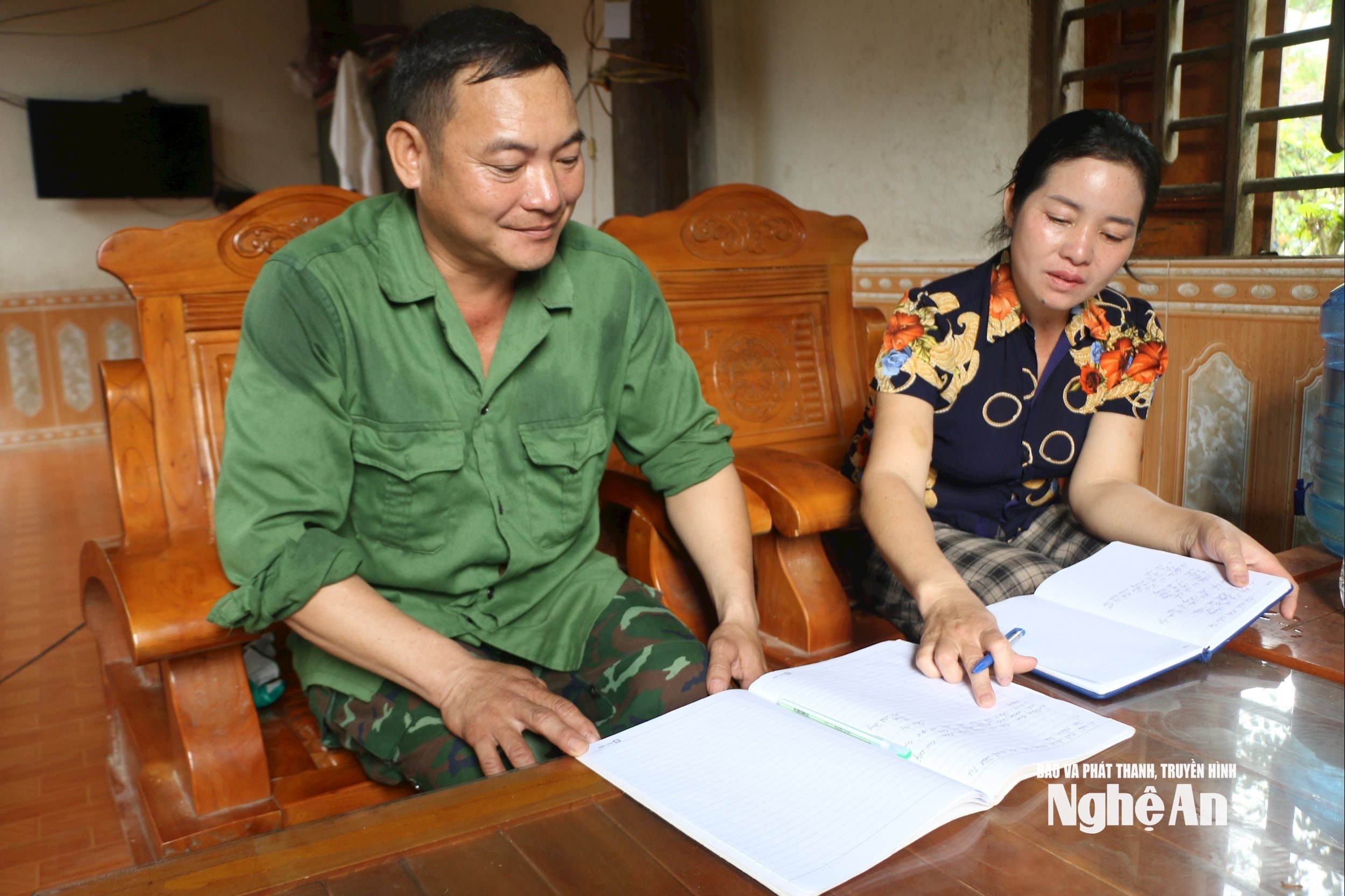
In Yen Hoa village, all matters, big and small, are discussed publicly, and opinions are sought from cadres, party members and people. When the majority agrees, resolutions are issued and implemented. This approach has created a high consensus for all policies: from purchasing equipment for cultural houses, expanding production roads, repairing canals, to resolutions on increasing production, applying science and technology to livestock and crop farming.
To overcome the mindset of waiting and relying on others, promote the movement of hunger eradication, poverty reduction, and improve the material and spiritual life of the community, the "locomotives" in Yen Hoa village not only take care of public affairs but also set an example in economic development.
Village chief Vi Van Luu raises pigs and goats, grows 2.5 sao of rice and 5 hectares of acacia. Party cell secretary Luong Thi Mo raises bamboo rats, goats, and breeding pigs, grows 5 hectares of acacia, opens a breeding point and buys plows and combine harvesters to serve production for local people. Meanwhile, deputy village chief Loc Van Dan grows acacia and tea, and buys trucks to buy acacia...
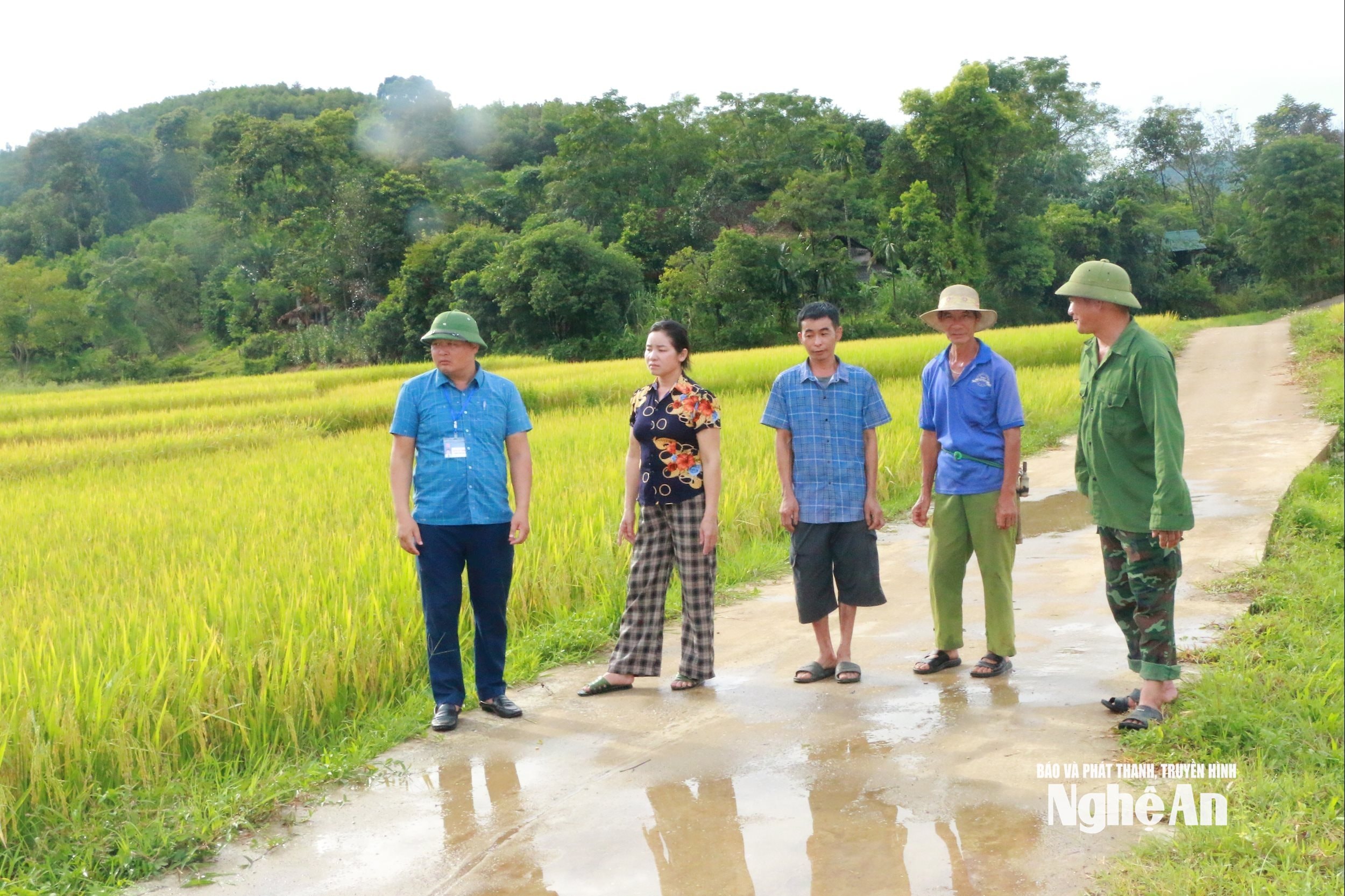
With that spirit, Yen Hoa village has had many changes in production and life. The village cultural house is not only a place for community activities, but also a place to share experiences, train in livestock and farming techniques, or discuss repairing canals, building roads, and intra-field roads to serve production.
When someone's family is in trouble, the whole village joins hands to help harvest crops, build houses, clean the environment, contribute firewood, contribute rice, support trees and seedlings to develop the economy... These simple actions have contributed to fostering the spirit of mutual assistance, and are also factors that create community strength in Yen Hoa village.
Besides taking care of economic development, the Party Cell and the Management Board of Yen Hoa village also pay attention to stabilizing security and order, doing a good job of grassroots reconciliation, maintaining solidarity, peace and harmony as the name of the village.
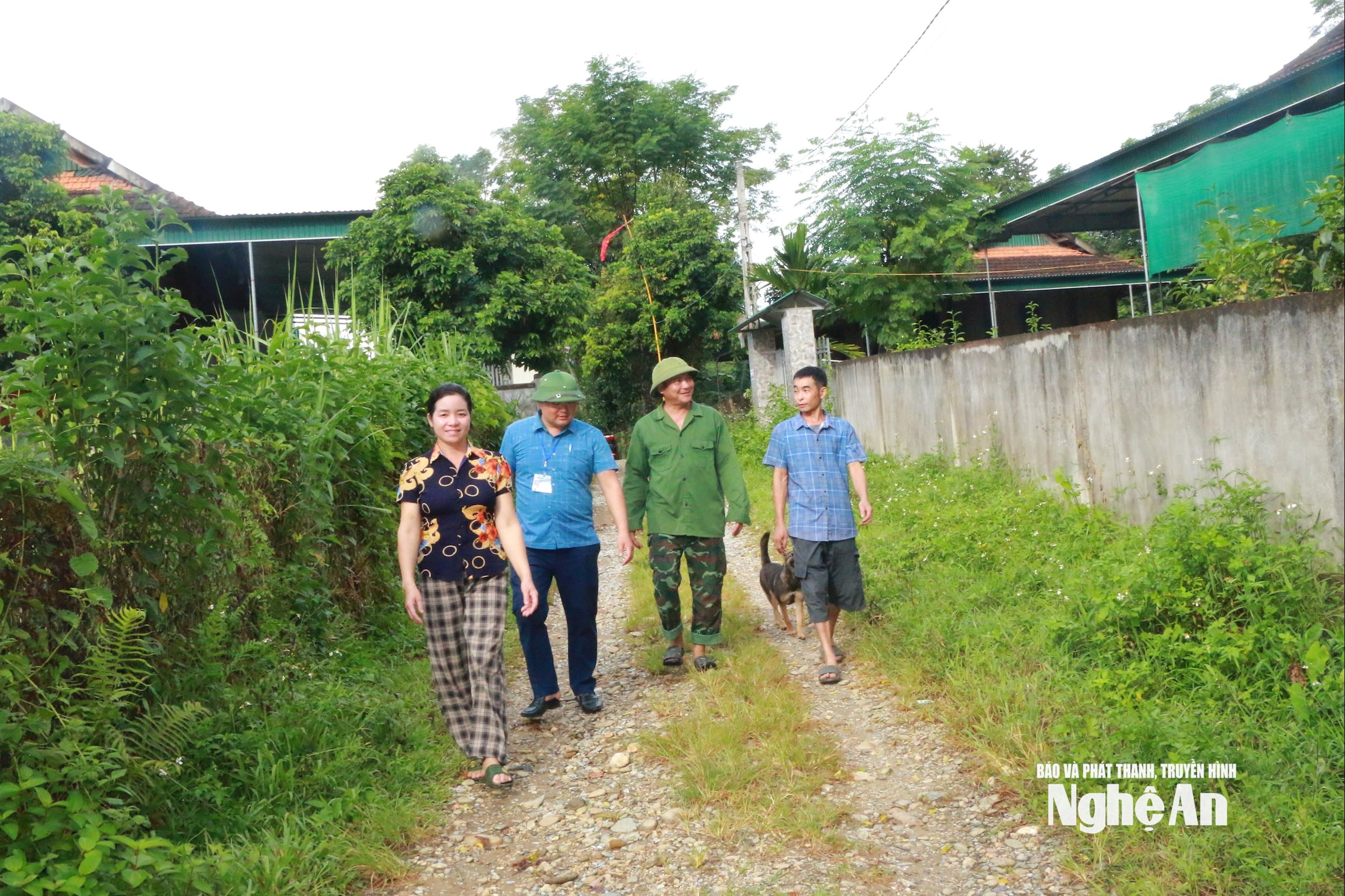
Mr. Ngan Van Truong - Head of the Economic Department of Mon Son Commune, who guided us to the village, commented: "The exemplary role of the virtuous daughters-in-law and sons-in-law, who are also the "locomotives" in Yen Hoa village, has spread the spirit of overcoming difficulties, rising up, changing the thinking and working habits of the people in this difficult land. Thanks to that, the poverty rate has decreased to 22/132 households. Their dedication, sacrifice, and responsibility for the people and the village are proof of the saying "what cadre, what movement".

In the late afternoon, the blue smoke from the stilt house stove gently curled around the mountain slopes, the sound of chickens calling their flocks, the chirping of children in the yard. On the way out of the village, our car passed by stilt houses with bright red tiled roofs, small trucks carrying acacia trees back and forth, and fields bustling with harvest...
All of this has created a fresh look for the small village of the Thai ethnic group in this difficult border commune. Contributing to that change is the contribution of simple, rustic people - kind daughters-in-law, good sons-in-law, exemplary party members who are silently taking on the work of the village and the people.…


.jpg)
